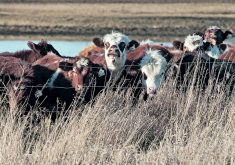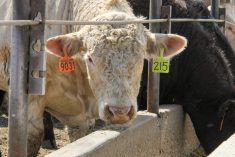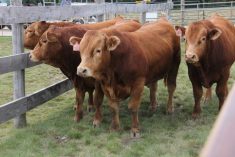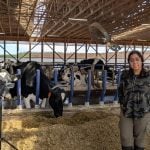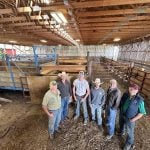The first, and so far only, Alberta hog farm to catch porcine epidemic diarrhea (PED) could see animal shipments restart on a supervised basis “in the coming week.”
The provincial ag ministry on Thursday said its investigation of the PED case, discovered Jan. 3 at a 400-head farrow-to finish operation, “continues to suggest that the incident is limited to one farm, with no evidence of spread off of the farm.”
Samples from the environmental sampling surveillance program at high-traffic sites in Alberta, such as assembly yards, abattoirs, truck wash stations and stock trailers, “continue to be negative for PED.”
Read Also
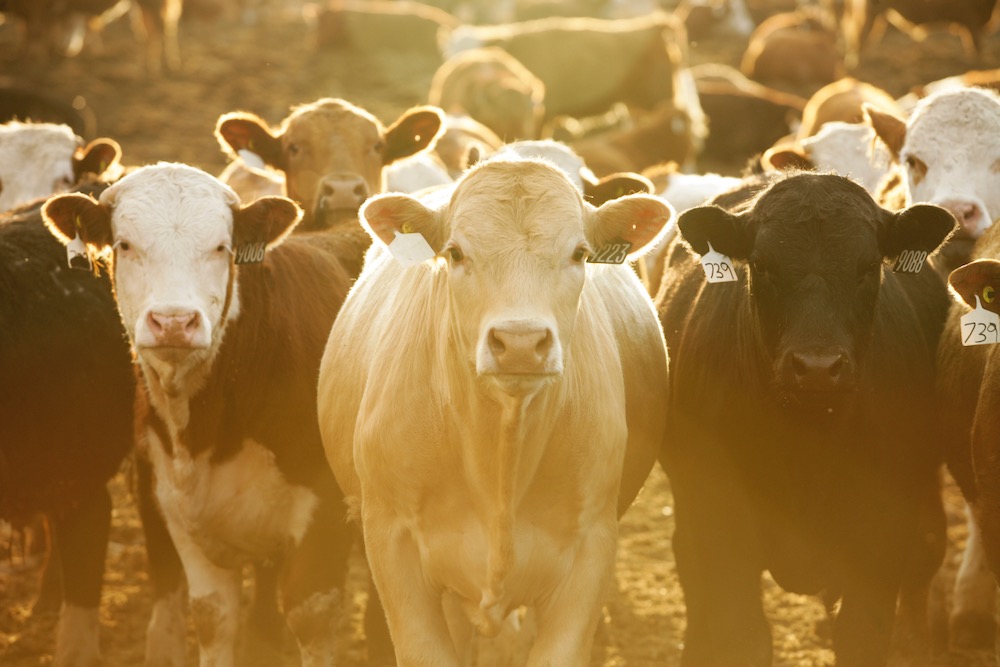
U.S. livestock: Cattle futures drop on Trump call for lower prices
Cattle futures on the Chicago Mercantile Exchange dropped sharply on Wednesday, reacting to comments from United States President Donald Trump…
The ag ministry, working with Alberta Pork, is still looking into possible sources for the infection, “but, as in previous outbreaks, there may be an inability to definitively identify a source,” the province said.
Extensive testing has so far explored and ruled out several theories, including introduction by animals or transports, Alberta Pork said in a separate release. “Unfortunately, no obvious source of introduction was found.”
So far, Alberta Pork added, there’s “no evidence to support other theories such as introduction by feed or equipment brought onto the farm.”
As for the farm’s hogs, none have left the farm since PED was first detected there, and provincial veterinarians and the herd’s vet have since made “several visits” to the farm, the province said.
All animals on the farm are in “good condition with sufficient space,” the province said, and are being observed for any ongoing signs of illness. Sampling is also still being run to see whether any of the animals are still infectious.
“Enhanced biosecurity measures” are also still in place to reduce the risk of the virus leaving the farm site, Alberta Pork said, adding that all producers “should always strictly uphold their own biosecurity protocols.”
The PED virus (PEDv) is a coronavirus which, once introduced in a herd, causes vomiting, watery diarrhea and dehydration in infected animals. Mortality rates run up to 100 per cent in infected nursing-age piglets but are much lower in growing hogs, which generally present with milder diarrhea.
The virus affects pigs but poses no risk to human health or food safety, and pork products remain safe for consumption, Alberta Pork reiterated. — Glacier FarmMedia Network



